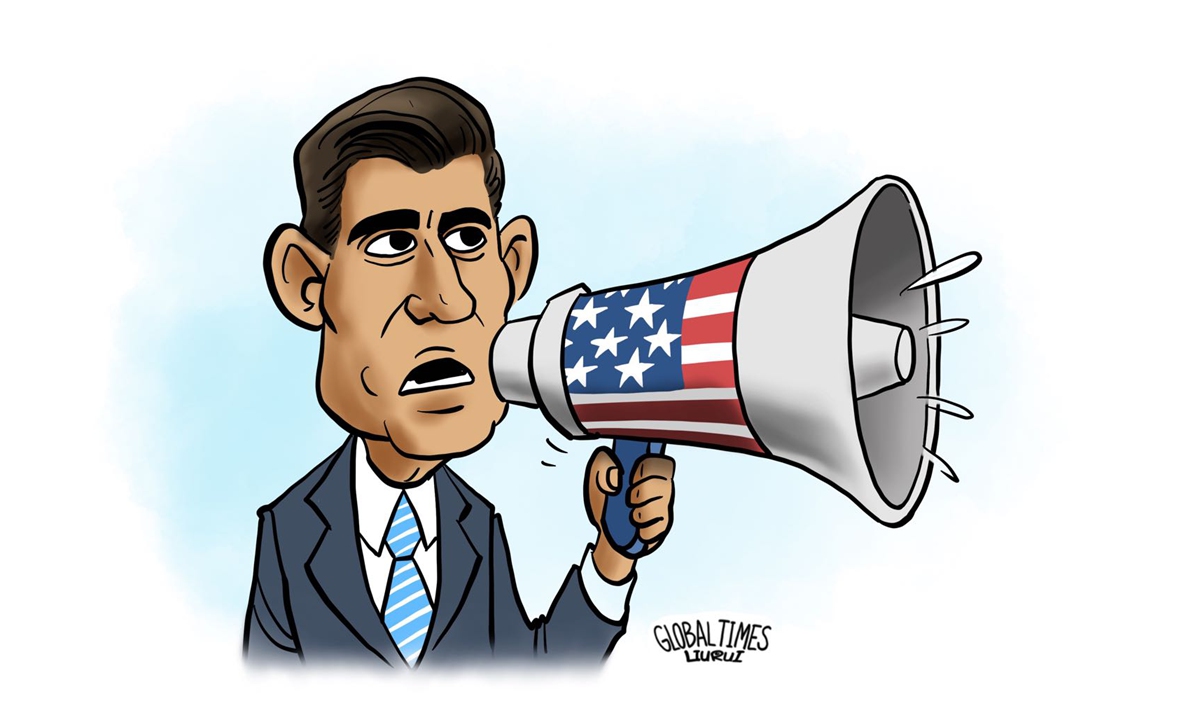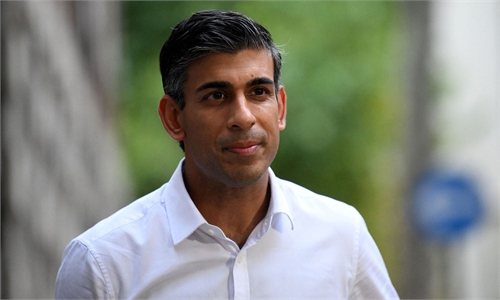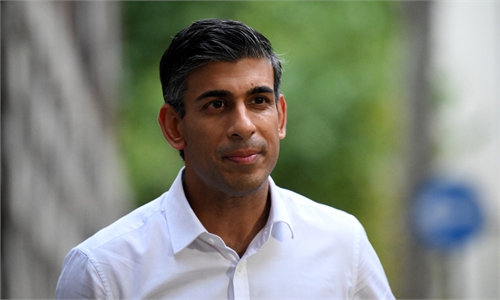
Illustration: Liu Rui/GT
On Monday night British Prime Minister Rishi Sunak made his first major foreign policy speech wherein he effectively called for "constructive" engagement with China. Warning against a "new cold war" the new leader stated that "We cannot simply ignore China's significance in world affairs, to global economic stability or issues like climate change. The US, Canada, Australia, Japan and many others understand this too. So together we'll manage this sharpening competition, including with diplomacy and engagement."However, he nonetheless branded China as a "systematic competitor" and declared the "Golden Era" of relations, famously dubbed by former prime minister David Cameron, is over. Although the speech was hardly conciliatory, leading China hawks in the UK, including cheerleader Iain Duncan Smith, lambasted Downing Street as "weak" and accused him of appeasement.
Sunak's China policy has been arguably nothing short of nonsensical and full of contradictions. From branding the country the "biggest threat" to the UK during the Conservative leadership election, to calling for a banning of all Confucius Institutes, to vetoing the takeover of the Newport Wafer Fab much to local disdain, the Prime Minister now calls for "constructive engagement." From China's own perspective, Sunak's actions speak far louder than words and such calls could not be more unsubstantiated.
It is obvious that Sunak's China related decisions are being driven by domestic pressures, as opposed to national interest. From the days of the leadership contest, Sunak feels that he has to be "tough" on China in order to win support from right-wing MPs inside the Conservative Party. As frequently quoted by the media, Iain Duncan Smith is one of the primary troublemakers, and constantly seeks to push the government toward a more aggressive posture. Relentless hostility toward China in the British mainstream media is also a weighing factor.
In doing so, Sunak is trapped in a conundrum whereby the Conservative government at large has been pursuing a foreign policy which is not in fact "pragmatic" as he called it, but purely ideological. Beginning with Brexit, all reason, restraint and balance in Britain's foreign policy has been superseded with imperial nostalgia, ultra-nationalism and a denial of the country's place in the world. This trajectory has been extremely damaging to Britain's economy, which is now technically in a state of recession. The UK has cut its ties with Europe, shunned China as a critical trading partner, and pursued all out confrontation with Russia.
As these events take their economic toll on the UK, the government likely recognize a course correction is needed but have little political space to do so. This creates a diplomatic outlook which is filled with contradictions. Sunak has declared China a practical enemy on one hand, and made hostile decisions, while nonetheless asking for engagement on the other. His bombastic rhetoric has made these calls for engagement come across as being in extraordinary bad faith or opportunistic. Hence when Sunak sought to meet with Chinese President Xi Jinping at the G20 summit, the meeting was reportedly cancelled owing to UK provocations in respect to Taiwan question.
Beyond domestic politics, the next factor limiting the scope of engagement between the UK and China is not in fact based in London, but in Washington. The US continues to hold an unrighteous dominion over the UK's foreign policy and sovereignty. The Newport Wafer Fab and Huawei's participation in 5G are but two instances whereby Britain made the decision to "engage" China based on its own national interests, but found these decisions vetoed in the name of American pressure. When this is taken into consideration, what space does the UK actually have to engage with China on its own terms? For sure, it is far less than that of European states.
Given all of these factors, Sunak's call for constructive ties sound hollow. If the prime minister is serious about such, he needs to show it with actions and not merely words, as currently he is pursuing an incomprehensible position wherein China is an enemy on one day, but then is to be engaged another. If he is to thrive as prime minister, Sunak must show a will and determination for independent, rational and realist foreign policy decision making which addresses the fundamental problems Britain faces. This should involve navigating away from simply parroting Washington's will, while shunning the ultra-hawks in his own party hooked on the British Imperial dream. Britain right now is in a sorry state, and desperately needs real results for its people.
The author is a political and historical relations analyst. opinion@globaltimes.com.cn


